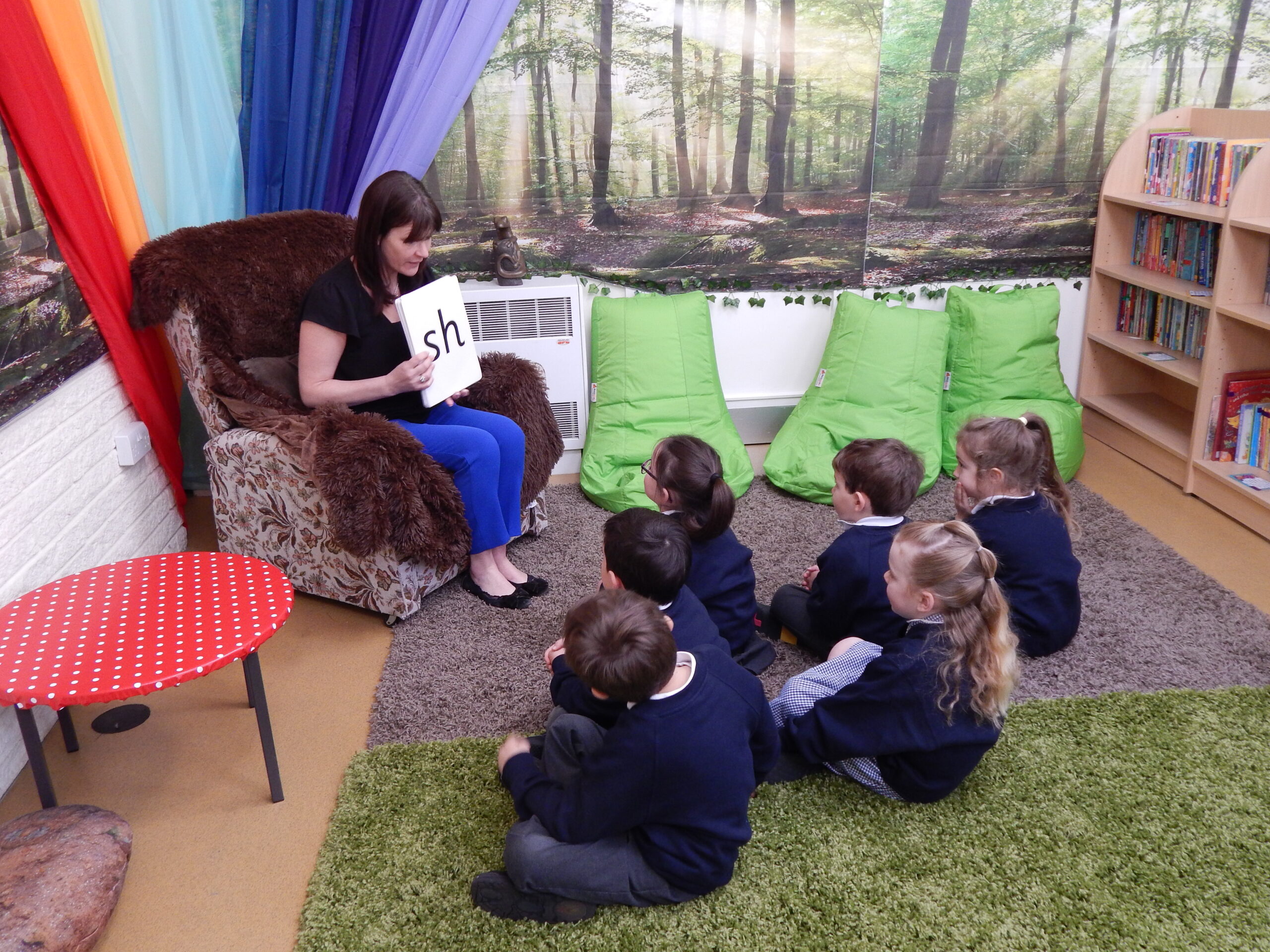Phonics

Read Write Inc
Intent
At Weeth School, we are passionate about ensuring all children become confident and enthusiastic readers and writers.
We believe that Read Write Inc. (RWI) phonics provides the foundations of learning to make the development into fluent reading and writing easier. Children learn to read fluently and at speed so they can focus on developing their skills in comprehension, vocabulary and spelling. Through RWI Phonics, children learn a simple alphabetic code followed by a more complex code. All reading books progress cumulatively, matched to the sounds children are learning and already know. The teaching of phonics is of high priority.
Implementation
The systematic teaching of phonics has a high priority throughout the Early Years Foundation Stage (EYFS) and Key Stage 1. Phonics is taught daily to all children in EYFS, Year 1 and those in Year 2 who have not passed the phonics screening in Year 1 or completed the RWI Phonics programme.
In EYFS, a vital aspect in the development of essential knowledge and skills in phonics is the use of continuous provision. This means that children are using and developing taught skills throughout the year on a daily/weekly basis. We constantly provide enhancement opportunities to engage learners and link to our topics. We encourage children to be independent in the continuous provision.
Children also take part in daily synthetic phonics sessions, which follow the Read Write Inc. scheme. Children are encouraged to transfer the skills they learn in their phonics sessions into their independent reading and writing in the continuous provision.
Children are taught to:
- decode letter/sounds correspondences quickly and effortlessly, using their phonic knowledge and skills
- read ‘tricky’ (red words) on sight
- understand what they read
- read aloud with fluency and expression
- write confidently, with a strong focus on vocabulary and grammar
- spell quickly and easily by segmenting the sounds in words
- acquire good handwriting
In addition, children are taught to work effectively with a partner to explain and consolidate what they are learning. This provides the teacher with opportunities to assess learning and to pick up on difficulties, such as children’s poor articulation, or problems with blending or alphabetic code knowledge.
Children are grouped, according to their progress in reading rather than their writing. This is because it is known that children’s progress in writing will lag behind progress in reading, especially for those whose motor skills are less well developed.
Staff ensure that children read books that are closely matched to their increasing knowledge of phonics and the ‘red words’. This is so that, early on, they experience success and gain confidence that they are readers. Alongside this, the teachers read a wide range of stories, poetry and non-fiction to children: they are soon able to read these texts for themselves. Adults read stories to the children every day where a love of reading is promoted.
For those children who are not making the expected level of progress in phonics and reading, 1:1 intervention will be implemented. With RWI, one-to-one tutoring for our slowest progress readers in YR to Y4 is offered to ensure that no child gets left behind.
